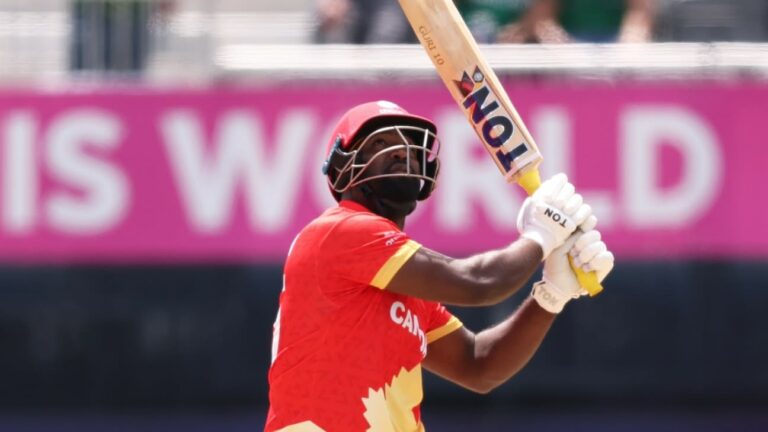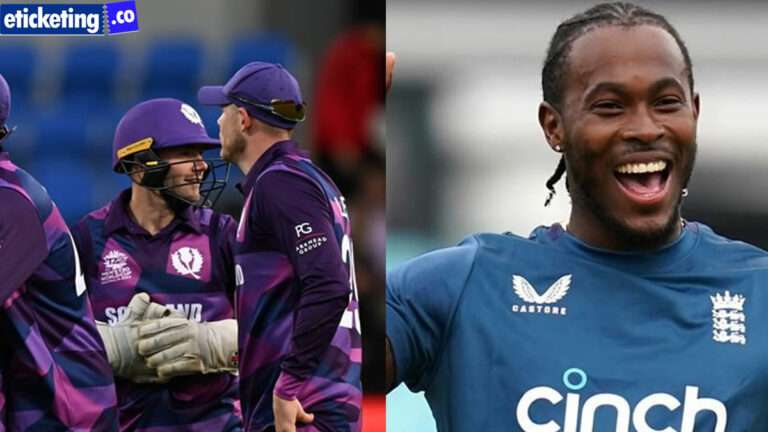Analyzing the Challenges of Cricket Player Contracts
11xPlay, Allpaanel: Negotiating contracts is a crucial aspect of a cricket player’s career, but it is not without its challenges. One common difficulty faced by players is the disparity in bargaining power between them and team management or franchise owners. This power dynamic can sometimes result in players feeling pressured to accept terms that may not be in their best interests.
Additionally, the uncertainty surrounding a player’s performance levels and injury risks can add complexity to contract negotiations. Teams may be hesitant to offer long-term or lucrative deals to players whose form or fitness is in question. This can leave players in a vulnerable position, especially if they are eager to secure their financial future amidst the competitive nature of professional cricket.
The Impact of Sponsorship Deals on Cricket Player Contracts
Sponsorship deals play a pivotal role in shaping cricket player contracts, often serving as a significant source of income for professional cricketers. These deals not only provide financial stability but also offer visibility and endorsement opportunities that can enhance a player’s personal brand and marketability in the highly competitive world of cricket.
Moreover, sponsorship agreements have the potential to boost a player’s overall earnings beyond the traditional contract terms, as successful partnerships with brands can lead to lucrative opportunities both during and after their cricketing careers. By aligning themselves with reputable brands that resonate with their personal values and image, cricket players can leverage sponsorship deals to secure long-term financial security and establish themselves as marketable figures in the industry.
Navigating the Complexities of Endorsement Agreements in Cricket
In the realm of cricket, endorsement agreements play a significant role in a player’s overall earnings and brand image. These agreements can be complex to navigate due to the multitude of factors involved. From the negotiation of terms to ensuring alignment with personal values and image, cricket players must carefully consider each endorsement opportunity that comes their way.
Endorsement agreements in cricket often entail extensive commitments beyond the boundaries of the sport. Players may be required to attend events, participate in promotional campaigns, and endorse products or services that resonate with their personal brand. As such, it is essential for players to strike a balance between maximizing their financial gains and maintaining authenticity in their endorsements to build long-term credibility with their fan base and sponsors.
The Role of Player Agents in Securing Favorable Contracts
Player agents play a crucial role in the cricketing world, serving as the key intermediary between players and clubs when negotiating contracts. These agents possess in-depth knowledge of the industry, contract regulations, and market trends, allowing them to secure favorable deals for their clients. By leveraging their expertise and extensive network of contacts, player agents can effectively advocate for the best interests of the players they represent.
In addition to handling the negotiation process, player agents also provide valuable guidance and support to players throughout the contract discussions. From analyzing contract terms to advising on potential opportunities, these agents work tirelessly to ensure that their clients make informed decisions that align with their career goals and financial objectives. With their professional insights and strategic approach, player agents play a vital role in maximizing the earning potential of cricket players in today’s competitive sports industry.
Understanding the Financial Implications of Performance-Based Contracts
Performance-based contracts in cricket can greatly impact a player’s earnings based on their on-field achievements. For example, a player may receive bonuses for scoring centuries, taking wickets, or achieving certain milestones during a match or series. These financial incentives not only motivate players to perform better but also reward them for their efforts and contributions to the team.
On the flip side, performance-based contracts can also add pressure on players to consistently deliver strong performances. Failure to meet the set criteria or expectations can result in financial penalties or a reduction in earnings. This aspect of performance-based contracts highlights the competitive nature of professional cricket and the importance of maintaining a high level of performance to secure financial rewards.
Balancing Team Commitments with Individual Player Contracts
When it comes to balancing team commitments with individual player contracts in cricket, players often find themselves at a crossroads. While the primary focus is on performing well for their team, they also need to be mindful of their personal contractual agreements. This delicate balance requires players to juggle between giving their best on the field for the team and meeting the obligations outlined in their individual contracts.
Moreover, conflicts can arise when team schedules clash with personal endorsement events or commitments. Players must effectively communicate with both their team management and their agents to find amicable solutions that do not compromise their professional relationships or the terms of their contracts. Finding the right balance between team commitments and individual player contracts is a skill that can significantly impact a player’s career trajectory and financial well-being.
Addressing the Issue of Player Transfers and Contract Buyouts
Player transfers and contract buyouts are common occurrences in cricket, often driven by various factors such as performance, team requirements, and financial considerations. When a player is transferred from one team to another, it can be a complex process that involves negotiations between the player, the two teams, and sometimes even player agents. Contract buyouts, on the other hand, occur when a team wishes to terminate a player’s contract before its expiration date. This can be a contentious issue, as it can have financial implications for both the player and the team.
In some cases, player transfers and contract buyouts can be amicable agreements between all parties involved, with terms mutually agreed upon. However, there are also instances where disputes arise, leading to legal challenges and potential conflicts. It is essential for cricket players and teams to navigate these situations carefully, considering both the contractual obligations and the broader implications on player careers and team dynamics.
The Influence of Player Reputation on Contract Negotiations
Player reputation plays a significant role in contract negotiations within the world of cricket. A player’s reputation is often a key factor that clubs and sponsors consider when determining the value of a contract. For example, a player with a strong track record of performance and professionalism is likely to command higher salaries and endorsement deals compared to a player with a less stellar reputation.
Moreover, a player’s reputation can also impact their bargaining power during contract negotiations. Players who are known for their leadership skills, work ethic, and positive public image are more likely to negotiate favorable terms in their contracts. On the other hand, players with a negative reputation may face greater challenges in securing lucrative contracts and endorsements. As such, maintaining a strong and positive reputation both on and off the field is crucial for cricket players looking to maximize their earnings through contracts.
Navigating Contract Disputes and Legal Challenges in Cricket
Contract disputes and legal challenges in cricket can arise from various sources, including disagreements over contract terms, breaches of agreements, and conflicts regarding player rights. These disputes can often lead to protracted negotiations, mediation, or even legal proceedings, impacting the player’s career and financial stability. Players may find themselves caught in complex legal battles that require strategic navigation to reach a resolution beneficial to all parties involved.
In such situations, seeking legal counsel from sports law experts or specialized agents can be instrumental in resolving contract disputes effectively. These professionals possess the knowledge and expertise to interpret contractual terms, assess legal implications, and advocate for the player’s rights in negotiations or legal proceedings. By leveraging their guidance and support, cricket players can navigate the intricate terrain of contract disputes with a clearer understanding of their rights and options for resolution.
Strategies for Cricket Players to Maximize Their Earnings Through Contracts
To maximize their earnings through contracts, cricket players should focus on enhancing their performance on the field. Consistent and exceptional performance can significantly increase a player’s market value, leading to better contract offers from teams and sponsors. Players should prioritize skill development, physical fitness, and mental strength to stand out among their peers and attract lucrative opportunities.
In addition to on-field performance, cricket players can maximize their earnings by actively engaging in personal branding and marketing themselves effectively. Building a strong social media presence, collaborating with reputable brands for endorsements, and showcasing their unique personality off the field can all contribute to enhancing a player’s marketability and attracting lucrative sponsorship deals. By strategically positioning themselves in the public eye and cultivating a strong personal brand, cricket players can leverage their off-field image to secure profitable endorsement agreements and increase their overall earning potential.
What are some common challenges cricket players face in contract negotiations?
Some common challenges include negotiating fair compensation, securing endorsement deals, and balancing team commitments with individual contracts.
How do sponsorship deals impact cricket player contracts?
Sponsorship deals can significantly increase a player’s earnings by providing additional revenue streams outside of their base contract.
What is the role of player agents in securing favorable contracts for cricket players?
Player agents play a crucial role in negotiating contracts, securing endorsement deals, and maximizing a player’s earning potential.
How do performance-based contracts affect a cricket player’s earnings?
Performance-based contracts incentivize players to perform well, as their earnings are directly tied to their on-field success.
How can cricket players navigate the complexities of endorsement agreements?
Players should carefully review endorsement agreements, seek legal advice if needed, and ensure that the terms align with their personal brand and values.
How do player transfers and contract buyouts impact cricket player contracts?
Player transfers and contract buyouts can have financial implications for both the player and the teams involved, requiring careful negotiation and legal consideration.
How does a player’s reputation influence contract negotiations in cricket?
A player’s reputation can impact their market value and bargaining power in contract negotiations, as teams may be more willing to offer favorable terms to players with a strong track record.
What strategies can cricket players use to maximize their earnings through contracts?
Some strategies include building a strong personal brand, seeking out endorsement deals, working closely with player agents, and staying informed about market trends and opportunities.







